Some major areas covered in this policy update. We summarise all the latest parliamentary action on duty of care and consider what’s next for the sector more generally. Lots if research news, including the House of Lords being grumpy about the UK’s plans (and progress) to become a science and technology superpower. Horizon Europe guarantees have been extended (again). There’s the latest on free speech and the CMA requirements relating to course changes. Finally, an in-depth look at the future of international students from two authoritative figures in the sector.
The outlook for the sector
In a speech at an event hosted by the Higher Education Policy Institute, the Secretary of State outlined his 3 priorities for the sector, to meet skills needs, advance social justice and deliver high quality qualifications. He talked extensively about apprenticeships and wanting the sector to do more in this are, as these programmes not only help with skills needs but also support disadvantaged students to earn while they learn, enhancing his social justice agenda too. He also made reference to mental health and wellbeing and the importance of student support.
- The government has yet to provide the outcome to the Department for Education consultation on minimum entry requirements and student number caps – these have been outstanding since last year. In his speech the Secretary of State for Education, Robert Halfon said that he hoped we would get them soon.
- Here is a Wonkhe blog covering Halfon’s speech.
Shadow Secretary of State for Education Matt Western also spoke at the event. He wouldn’t be drawn on detailed plans ahead of the work that Labour have to do on their manifesto. Labour have already indicated they want to replace the current system with something “fairer and more progressive,” including reversing the changes being implemented this year which will increase the payment term and lower the threshold for student loan repayments, meaning that some lower paid graduates will pay more (because of interest and the longer term) than higher paid ones who pay it back earlier. It does sound increasingly like a graduate tax arrangement. He noted that the sector needed to be financially sustainable, but there are no promises about increased income under the new government. The Shadow Minister was also supportive of the LLE.
- The Shadow Minister noted the cost of living issues impacting students, criticised the negative rhetoric about the value of a degree, and talked about social and educational inequality. He was highly critical of the regulatory burden in the sector, with multiple and overlapping regulators. He expressed admiration for what is happening in Wales, where the Welsh government are in the course of setting up a new combined regulator and funding body for tertiary education, which includes FE and HE, apprenticeships and skills training. Note that in Wales there are means-tested grants available for maintenance costs. The Welsh have also not extended the student loan repayment term to 40 years.
- Research Professional have a piece Muddied red water which argues the fit with the wider UK isn’t clear, particularly because the Welsh arrangements do not address the issue of financial sustainability as the value of the tuition fee falls.
- Iain Mansfield (ex- SpAd to Michelle Donelan and Director of Research and Head of Education and Science at Policy Exchange) writes for Wonkhe stating that while a return to real interest rates would be more progressive and seem intuitively fair he’s not sure the claims and the numbers stack up. Mansfield has his own political agenda and if you read the full blog you’ll spot he favours this argument pattern: stating ‘this looks nice…but it won’t work because…’
- On public perception of fee fairness and the tax system Mansfield states: A system where interest rates are no higher than inflation, so that no-one will pay back more, in real terms, than they paid in is intuitively felt to be fair. Tony Blair, arguably the most canny political operator of our time, understood this, and it was a fundamental concept that underpinned the system of student loans in the New Labour era. Introducing swingeing rates of interest in 2013 toxified the system – and it is no coincidence that fees have only been raised once since then… If you want to deliver more progressive taxation, changing income tax rates is far better targeted than introducing arbitrarily high rates of interest into your higher education funding system – not least because you can target the whole population, rather than the minority who are graduates.
- On the numbers: There’s a second big problem, and it’s that you can’t use a future asset – the additional money you will hypothetically receive from graduates in 30-40 years’ time – to directly pay for a current expense, such as reduced repayments or new maintenance grants… additional cash now requires additional borrowing. I’m going to go out on a limb, therefore, and say that the claim that reducing monthly payments can be done without additional borrowing will end up being incorrect.
- On grants Mansfield foresees consequences for universities: …it seems that the poorest students may get a maintenance grant… Restoring maintenance grants is a very reasonable thing to want to do – but it has consequences… For universities rightly worried about their finances it means that maintenance grants and lower repayments look likely to be prioritised over any increase in the funding per student…it shows where Labour’s priorities lie: and that is with graduates and low-income students, not with universities.
- Mansfield also reminds that Labour’s tax cut messaging didn’t work out for Theresa May when she raised the repayment threshold from £21k to £25k – graduates saved £360 per year but it cost the Treasure £2.3 Billion and had no impact on political gain in the polls
- Following Labour’s announcements that they will not abolish tuition fees NUS Scotland campaigned Scottish Labour who have confirmed they continue to support free tuition in Scotland.
To note: All together now: An independent report into tertiary education in Scotland (the Withers report) – Fit for the Future: developing a post-school learning system to fuel economic transformation – advocates for a single organisation to provide the funding, strategy (and presumably operationalisation) of all tertiary education in Scotland. This in an interesting one to watch how it plays out because while Westminster haven’t been bold enough to suggest this for England’s tertiary education it fits well with the Government’s ideals of a rationalised and coherent post-compulsory sector where the different routes through education have a parity of esteem. Also, FE and HE Minister Halfon is on a crusade to tackle the systemic underfunding of FE provision. Such a change in England would require a major upheaval, however, it’s an interesting one to watch for the medium to long term. That is, if Scotland even decides to adopt it (Scottish HE Minister Graeme Day has made encouraging noises but stopped short of committed support). If you’re interest in the topic Wonkhe have a blog but the detail is here.
Susan Lapworth, Chief Executive of the OfS also spoke at the HEPI event and talked about the two priorities of the OfS: quality and standards and equality of opportunity, alongside the enabling and underpinning matters such as governance and financial sustainability. The OfS recently published its annual report and accounts.
Student Experience
Ahead of the NSS, which it has now been confirmed will be published on 10th August, the annual HEPI/Advance HE Student Academic Experience Survey was published in June.
- 76% of students feel that the cost of living crisis has affected their studies. 50% state that their studies were impacted “a little” and over a quarter (26%) state that their studies were affected “a lot”.
- There has been a major increase in the number of students in paid employment, from 45% to 55%.
- The proportion of students whose experience exceeded expectations increased from 17% to 19%.
- 37% of students said they received good or very good value for money.
The reasons for these perceptions are interesting as are the relative changes – generally, the % for each reason has fallen for each category, both in the positives and negatives, even below the 2020 cohort (generally completing pre-covid). The industrial action category was new this year after being highlighted in the open text replies previously. Note:
- A fall in positive responses linked to course organisation (11 ppts) although a drop in negative comments too
- A fall in positive responses to teaching quality but negative comments have also fallen
- A fall in positive responses to level of challenge
- Positive change in relation to quality of feedback
- A fall in the positive and a rise in the negative from 2020 and 2021 on accessibility of teaching staff
As usual, there is a lot more content including analysis by characteristic, and the report is worth reading in full.
Here’s the Wonkhe blog on the survey.
Horizon Europe Guarantee – extended
Following on from the not-new-news Viscount Camrose set out above the Government has announced the extension of support for UK Horizon Europe applicants until the end of September 2023. The extension continues to guaranteed funding for successful UK Horizon applicants. End May figures note that £1.1 billion of grant offers have been made.
- The guarantee will be in place to cover all Horizon Europe calls that close on or before 30 September 2023. Eligible, successful applicants to Horizon Europe will receive the full value of their funding at their UK host institution for the lifetime of their grant.
- Successful awardees do not need to leave the UK to receive this funding, which will provide reassurance for future collaborations, and support UK researchers whether association is confirmed, or otherwise.
Full information on the Government announcement here. Operational detail on the UKRI website.
UK as Science and Technology Superpower
The Lords met to discuss Science and Technology Superpower, following the publication of the Science and Technology committee report. Leading the debate Baroness Brown of Cambridge was disdainful about aspects of the Government’s performance including:
- the “science superpower by 2030” slogan was vague;
- that numerous sectoral strategies existed across government, but they did not appear to fit into a clear, prioritised plan, and without international collaboration;
- concerns over the scale of investment and that the Government should adopt a new, appropriate, target for R&D investment.
The Baroness called for better definition on the Government’s strategy, for a Science Minister to sit in Cabinet and for the UK to rebuild its reputation as an international pattern, starting with association with Horizon Europe.
Other Peers raised:
- that regulation is important to support the sector and where do specific sectoral strategies, such as the AI strategy, fit into an overall coherent approach across all sectors.
- questioned how the Government were tracking what other countries did; the importance of researchers from abroad and whether scientific visa applicants were subsidising other functions of the Home Office.
- the need to develop global science partnerships, also that many, such as the Wellcome Trust, the ABPI, and the Royal Society, had highlighted that the UK needed to articulate more clearly its policies of global co-operation to attract science talent to the UK. Immigration policy popped up several times during the debate.
- that the report could have gone further in articulating how the UK could harness its advantages of agility, expertise and a focus on global impact to overcome disadvantages of scale, such as the Vaccine Taskforce.
- That ecology and social innovation were missing from the five critical technologies identified in the science and technology framework.
Lord Rees of Ludlow on HE: there are some worrying trends. The labour involved in grant applications was diminishing chances of success while research was still strongly concentrated in universities the encroachment of audit culture and other pressures are rendering universities less propitious environments for research projects that demand intense and sustained effort. Dedicated, stand-alone labs might become preferable, such as the biomedical science labs which allowed for longer-term research, supplemented by the Wellcome Trust, the cancer charities and a strong pharmaceutical industry. He said we needed this in energy, AI and other crucial technologies.
Viscount Hanworth stated concern over the systematic underestimation of the percentage of GDP that the UK devoted to research and development highlighting that it was still well below the OECD average and far behind that of most research-intensive nations. He added that the UK could not become a scientific superpower if it lacked a basis of scientific and technological industries that were ready to call upon the skills of the research workers.
The Government’s representative, Viscount Camrose, responded that the Department for Science, Innovation and Technology (DSIT) would promote a diverse research and innovation system, connecting discovery science to new companies, growth and jobs. Camrose said the science and technology framework challenges every part of government to put the UK at the forefront of global science and technology. Action will focus on creating the right environment to develop critical technologies; investing in R&D, talent and skills; financing innovative science and tech companies; creating international opportunities; providing access to physical and digital infrastructure; and improving regulation and standards.
Camrose tacked the funding calls by remind of the Government’s committed spend:
- £2.5bn over the next decade for quantum tech
- £1bn strategy for the UK’s semiconductor sector
- Government had recommitted to increasing public expenditure on R&D to £20bn per annum by 2024-25, representing a one-third cash increase and the largest ever increase in public R&D spending over a spending review period.
On Horizon, Camrose stated that the Government continued to be in discussions, in good faith, with their European counterparts on the UK’s involvement in Horizon Europe and hope that their negotiations will be successful. Pioneer will become the default if the Government is not able to secure Horizon association on fair and appropriate terms.
Camrose also updated on ARIA’s progress – it has been established and is still in its early stage of development. ARIA is recruiting its first cohort of programme directors, who will help to shape and inform the agency’s first set of research programmes. None the less, funding transformative research with long-term benefits will require patience, as prepared for in the agency’s design.
On the risks of precarity for research careers, Camrose said the Government is looking at how to support through a new deal for PGRs and mentioned UKRI’s sector consultation as a first phase of this long-term programme of work, and the results would be published soon, in 2023.
Quick Research News
REF changes: Nature have a lovely gentle editorial into the changes to REF2028. While the ‘how’ detail isn’t known yet we do know that the weighting will be changed:
- Output (now named contribution to knowledge and understanding) weighting is reduced from 60% to 50% of the overall score.
- The environment weighting (now known as people, culture and environment) increases from 15% to 25%.
- Everyone’s favourite – Impact – (now renamed engagement and impact) will remain at 25% of the overall score
Read the article for more on intentions for change around equality and diversity, quality PhD mentorship, and the expansion of the definition of excellence.
Wonkhe also have blogs on REF2028 and more background delving including the FRAP (Future Research Assessment Programme) is in this blog, and there’s a guest blog by the University of Liverpool – REF 2028: A Quiet Transformation.
Research infrastructure: Wonkhe report that – UKRI has announced £72m of investment into research infrastructure, including funding for wind tunnels and digital infrastructure for biomedicine. An independent report into progress with UKRI’s infrastructure programme has also been published, finding the programme has generally delivered its intended outputs and outcomes. However, the report observes that business case development and approval processes are still “overly complicated, duplicative and lengthy,” while noting that these processes sit outside the Infrastructure Fund’s remit and involve decision makers beyond UKRI.
Moonshots: Wonkhe highlight that UKRI and the Department for Science, Innovation and Technology (DSIT) have opened a call for submissions for “moonshots” – “bold, ambitious, and transformative ideas” across the research and innovation landscape. The call for ideas will be followed by discussion events and shortlisting, with chosen proposals set to receive funding through the government’s Horizon Europe alternative Pioneer – or possibly through alternative sources of funding if the UK does associate to Horizon.
Defence innovation: Wales has committed £5 million funding for Defence and Security acceleration across several streams. More detail here.
AI mitigation: Rishi announced the UK will host the first major global summit on AI safety (following polling show public concern over the safety of AI). Also announced were:
- The Government will increase the number of scholarships the UK Government funds for students undertaking post-graduate study and research at UK and US universities, enhancing our shared expertise in STEM subjects. Under the scholarship uplift announced today, the number of Marshall scholarships will increase by 25%, to 50 places a year. The Marshall scheme was established 70 years ago to give high potential Americans the opportunity to study in the UK for two years.
- The UK will also fund five new Fulbright scholarships a year – up from the 25 currently funded. The Fulbright programme is predominantly funded by the United States to sponsor international students to study in the US and vice versa. These new scholarships will focus on STEM-related subjects, boosting the UK and US’ shared expertise in the technologies of the future.
Research Security: Wonkhe – Scientists at least 11 British universities have helped the Iranian regime develop technology that can be used in its drone programme and fighter jets, the Jewish Chronicle reported yesterday. Politicians expressed “deep concern” over the findings, with the government saying that Britain would “not accept collaborations which compromise our national security.” The story is picked up in the Telegraph.
Canadian Cooperation: Wonkhe – Science minister George Freeman has announced a range of agreements covering collaboration on science and innovation issues with Canada. These include £20m for a joint programme on biomanufacturing, deeper collaboration on quantum and climate change research, and Canada becoming a partner to the International Science Partnership Fund.
NERC: NERC interim executive chair has been confirmed as Peter Liss (of University of East Anglia).
Research culture: Wonkhe blog – A recent parliamentary committee report called for the REF to incentivise reproducibility – but more fundamentally the issue is about promoting openness and transparency. Grace Gottlieb explains.
Life Science: Jeremy Hunt announced £650 million package to drive growth and innovation in the Life Sciences sector. The government is committed to making the UK the most attractive destination for life sciences companies and has developed a comprehensive package of policies spanning regulation, research and development (R&D), infrastructure, skills and planning which is aimed at driving investment, growth and innovation. Full details here.
Innovation economy: The Campaign for Science and Engineering (CaSE) published The Skills Opportunity: Building a more innovative UK (summary here) it covers the challenges for education and skills provision in the UK, with recommendations for building a more research and innovation-intensive economy.
AI research: The Government announced (UKRI funded) research investments to develop trustworthy artificial intelligence (AI) research with £13 million going to 13 universities for developing AI technologies to have more sustainable land management, accelerate energy efficient CO2 capture, and improve resilience for natural hazards and extreme events. Also £31 million to create a UK and international research and innovation ecosystem for responsible and trustworthy AI. The consortium led by the University of Southampton will fund multi-disciplinary research and work across academia, business, and the public sector. Plus £2 million for 42 projects’ feasibility studies in businesses as part of the BridgeAI programme. These projects will look at developing a range of tools to facilitate assessment of AI technologies through governance, fairness, accountability, transparency, and privacy, and security. And, finally, £8 million for 2 Turing AI Researcher Fellowships, funding ground-breaking research on some of artificial intelligence’s biggest challenges including its application across drug and food design, and healthcare imaging.
Diversity in STEM: Dods summarise – The Science, Innovation and Technology Committee has published the government response to their report on diversity and inclusion in STEM, which it describes as “disappointing” and has urged the Government to adopt a more purposeful strategy. In its response the Government said it is preparing a cross-Government action plan, led by the Department for Education, to “drive wider participation in STEM” and see “a more diverse range of people enter the science and technology workforce by 2030”. The Chair of the Committee, Greg Clark MP, has said that “without any specific commitments or timings this amounts to a plan to have a plan.”
Duty of Care
Dominating parliamentary time on HE matters recently has been the call for universities to hold a specific duty of care for the wellbeing of students. The impetus for change has been driven by a group of parents who tragically lost a child to suicide whilst at university. Their campaign has been mentioned in Prime Minster’s Questions and formally entered parliamentary business through a petition which reached the required threshold for the matter to be debated (see here for the volume of individuals that signed the petition in the constituencies surrounding BU). The Petitions Committee also ran an evidence session on the statutory duty of care (our shorter summary of the evidence session is here).
Ahead of the Westminster Hall Debate the Petitions Committee ran an online survey on the proposal for a statutory duty of care for HE students to gauge public opinion on the matter. The survey revealed:
- 27% of students who experienced poor mental health said their university was supportive/very supportive of their mental health.
- 40% said the university was unsupportive/very unsupportive.
- 86% of current students said they had suffered with poor mental health at university.
- 77% of parents or guardians of a current student said that their child was suffering or had suffered with poor mental health whilst at university. Of those, 91% had not been contacted by the university about their child’s mental health
- More statistics here.
Outside of the headline statistics are a number of quotes the Committee has included in the survey report.
- University staff member: “The university I work at has implemented some measures, but they are not ‘joined up’ and most staff don’t know what they are. There is no clear guidance on who should do what.”
- University student: “with the ‘trusted contact,’ I have had the opportunity to put someone down which I did when I started at university. However, when I experienced a mental health crisis and told the student wellbeing team I was suicidal, they did not contact my ‘trusted contact’ or ask if they could. They also did not offer me any support other than telling me to go to A&E if I hurt myself. So while it’s good for a university to have the ‘trusted contact’ option it’s also important that they use it
- Parent: “Although University has various contacts, like student support, counselling, there is no way to actually speak to someone as a parent when you have concerns about a student…In an urgent situation as a parent you need to know there is a way of escalating your concerns.”
At the Westminster Hall Debate Nick Fletcher, member of both the Education Committee and the Petitions Committee, and chair of the Issues Affecting Men and Boys APPG, opened the session by noting between 2017 and 2020 that 202 male students and 117 female students had died by suicide. Here are some of the main contributions made by Members during the debate:
- Hilary Benn stated that where a student attempted suicide, it was inexplicable that the university would not contact the parents and questioned whether the UUK suicide prevention guidelines should be made compulsory.
- Nick Fletcher stated that many universities cited GDPR issues regarding contacting parents but that, in his view safeguarding always overrides GDPR. He also questioned why universities were still to sign up to the UUK guidelines or the university mental health charter [Helen Grant MP later stated only 61 universities have signed the Charter, only 5 had achieved Charter status and no universities had reached the higher merit and distinction levels of accreditation].
- Nick Fletcher also stated that the witnesses they’d heard from in the committee’s evidence session – such as PAPYRUS and the student services organisation, AMOSSHE – had agreed that a duty of care would not be the best approach.
- Nick Fletcher: questioned why universities were still carrying out bad practice such as telling students they must leave by email, without any thought of the inevitable emotional and mental impact. He asked why institutions weren’t coming together to find common themes in coroners’ reports of the 319 students.
- Nick Fletcher: urged the Government: a statutory duty of care would ensure that all parties knew where they stood, but until we have one, please use the levers you have to make the universities do better at helping our young people. If they do not, do what the petitioners ask and legislate so that they must.
- Paul Blomfield, Chair of the Students APPG: noted UCAS estimates that over 70,000 students entered higher education every year with a mental health condition, but around half of them told UCAS in a survey that they had not shared that information prior to entry. Also that universities could not be the only post of call for students who were struggling – students should be able to access NHS services, but were struggling to do so.
- Paul Blomfield: stated he was not convinced that a duty of care would do the job those advocating it wanted, and could have unintended consequences. However, he said there still needed to be clear expectations on universities to up their game across the sector. He urged the Minister to acknowledge the other factors contributing to the mental health crisis, and asked what he would do, along with DHSC colleagues, to make support available to those working alongside universities.
- Helen Grant: a statutory duty of care would set the bar to level up… a standard that required all higher education providers to do what might reasonably be expected, while maintaining their autonomy in deciding exactly how that would be achieved.
- Shadow Minister for Higher Education, Matt Western, had met many families from the LEARN network and stated their diversity and number were a painful reminder that no family was immune from the consequences of the mental health crisis that affected many students on campuses. He stated he appreciated the time and money that many universities gave to providing mental health support for students and staff but said the gap between the expectations of students and parents and the reality of mental health provision in universities was far too great. He acknowledged that demand for services and support was clearly rising, with one in four student respondents to one survey reporting a diagnosed mental health issue. Many of those issues were also starting earlier in students’ lives. He also expressed disappointment that so few universities were signatories to the University Mental Health Charter.
- Matt Western highlighted that in Wales, the Commission must ensure it’s satisfied with the effectiveness of registered education providers’ arrangements for supporting and promoting the welfare of their students and staff. Western noted Wales was the first country in the UK to introduce such a requirement for FE & HE providers and asked if the Minister would consider something similar in England.
Minister for Skills, Apprenticeships and Higher Education, Robert Halfon, responded on behalf of the Government to the debate. He stated:
- he owed it to the memories of the young people to collectively take strong and effective action that prevented further tragedies.
- the Government’s approach would rely on funding services, spreading best practice and having clear responsibilities for providers and protection for students.
- the suicide-safer universities framework provided guidance on suicide prevention for university leaders. There was also now postvention best practice on providing compassionate and timely support after a suspected suicide. The associated charter programme was not a panacea but a process which enabled continuous improvement.
- if the response is not satisfactory from universities then the Department would ask the Office for Students to look at the merits of a new registration condition on mental health.
- Professor Edward Peck was appointed as the first ever student support champion in 2022 and is chairing a new higher education mental health implementation taskforce, with its outputs reporting directly to Ministers. By the end of this year, the taskforce would be asked to put in place an interim plan for better early identification of students at risk and for delivering the university student commitment as well as clear targets for improvements by providers. By May 2024, it should follow with a final report outlining the next steps, including how the sector will publicly report on the progress measures over the coming years.
Halfon declined to introduce legislation to create a statutory duty of care: I absolutely get the arguments and hope I have demonstrated that I share the petitioners’ fundamental aims, which are to protect those who study at university and to prevent future tragedies. If creating a duty for higher education providers towards their students was the right way to achieve that, it would absolutely have the Government’s backing. There are reasons why we believe that it may not be the most effective intervention.
Halfon stated there was already a sufficient general duty of care in common law as part of the law of negligence, plus further protections for students within the Equality Act 2010 to protect students with disabilities, including mental health conditions. He expressed concern that if a framework was too overbearing people will recoil even further and avoid any natural intervention that they would ordinarily make.
Halfon:
- setting aside the legal position, we do not believe that the most effective way to improve student mental health is to introduce new legislative requirements when the sector is making progress on a voluntary basis. Although the sector absolutely could and should do more…providers are still innovating and improving, and there is not yet consensus on which interventions are most effective…It is no excuse for not doing anything or for inaction, but it does mean that the one-size-fits-all approach may not achieve the best results and support for students suffering from mental health difficulties, which is what we all want to see…
- I expect universities, as organisations with an obligation to do the right thing for their students, to rise to the challenge that we have set for them today…if we do not see the expected improvements I will not hesitate to ask the Office for Students to introduce a new registration condition on mental health. It is vital that the whole sector takes this call to action seriously.
- I hope that I have been clear that we are not standing by and letting things continue as they are. I am determined that all universities will sign up to the mental health charter
In conclusion, Nick Fletcher said it was disappointing that progress was not being made faster but if there was not an improvement after 2024 when all universities had signed up to the mental health charter then he would be back to ask for the issue to be looked at again.
For more coverage here are some media sources:
So what’s next?
While the Minister has turned down the request for a statutory duty of care the matter is very much of national interest and the parent group’s campaign has brought greater focus and national coordination from the previous reporting of isolated student suicides that occurred across various institutions.
Halfon has remained true to his word and aims for the sector to provide consistent support with improvements where necessary. His expectation is that matters will progress and he is serious about intervening with licence or other conditions if action isn’t sufficient or fast enough. Halfon immediately wrote to universities setting out a range of actions (below). Of course, we have to mention the potential disruptive factor – the impending general election. Halfon has set a timeline to 2024, however the general election must take place by 28 January 2025. Even if the current Government wins Halfon isn’t certain to remain as Universities Minister and the policy focus changes as Minister’s change. That said, this is a matter of interest to all major parties and the media and while the specifics may alter with electoral changes the thrust of the matter will remain (and presumably so will the OfS).
Halfon’s Letter: Halfon tweeted the contents of his letter stating I am not closing the door on future legislation if that is what is required but I am confident the sector will rise to the challenge of the action plan I have set out below. The message is clear do it voluntarily, with some flexibility to apply it within own institutional context or be dictated to by the regulator/legislation.
Also important to mention is that there is a new NSS question on access to mental health support. It’ll be closely watched and if results are low the OfS may act (even though their regulatory remit does not apply to student welfare or support systems).
There is also a Duty of Care Bill introduced by Tim Farron (Lib Dem, Westmorland and Lonsdale). As expected, it’s a PMB (Presentation Bill), it’s nothing but a title – no Bill text, no explanatory notes. A Bill to provide that higher education institutions have a duty of care for their students; and for connected purposes. It was presented for First Reading on Wed 21 June and will (may!) receive Second Reading on Fri 24 November. Of course, there are LOADS of them scheduled for Second Reading, and being a Presentation Bill it’s at the bottom of the pile.
Mental Health debate
There was also a recent debate on mental health treatment and support.
Aaron Bell MP:
- Aaron highlighted that many universities have a professional counselling and mental health team to support its students.
- He spoke of HESA data: In 2021-22 19% (416,000) of UK students declared a disability—and within that, 119,500 said they had a mental health condition (5.5% of all UK students). He stressed the growth in number – That number is three and a half times higher than it was in 2014-15 and noted higher rates are found among women, undergraduates, full-time students and those in their second or later years. He stated: there is an issue here that we have to address
- He believes the pandemic is partly to blame.
Layla Moran also focussed on students withing the debate:
- It will come as no surprise that the Mental Health Foundation found that 40% of students are not coping well with their anxiety.
- In Oxfordshire…82% of students at Oxford Brookes University had self-medicated with drugs or alcohol to cope with mental health issues.
- Where students know that they cannot rely on the NHS, an added burden is put on university staff. Tutors increasingly find themselves acting as therapists or counsellors for their overburdened, ill or anxious students.
- …the students I have spoken to have made it clear that “University wellbeing services are not and cannot be a substitute for adequate mental health care”
- On the duty of care Layla stated: It is just common sense. It already exists between employers and employees. All we are asking is for the same duty of care to apply to students.
- we all know, the problems in young people’s mental health services are not restricted to those at university. So many people tell me the system is broken: parents, teachers, educational psychologists and clinical psychologists all identify the same failings. One parent wrote to me:
- I am breaking my heart listening to my son saying horrible things about himself, threatening to take his life, and struggling with his mental health in general. Next year we would have been on the waiting list for four years and nothing will probably happen.
- We know how to fix this; it is about more funding. A senior healthcare professional in Oxfordshire told me that “every pound spent on a child’s mental health saves thousands in the future.”
Regulatory
Wonkhe report that the OfS will publish a review highlighting concerns about some assessment and awarding practices in higher education providers. We’re also waiting for consultations on freedom of speech and the lifelong learning entitlement.
If you fancy some light relief read Research Professional’s irreverent take down of the OfS under the banner of commenting on the OfS annual report.
- Excerpts: As a bureaucracy, the OfS, now in its fifth year, seems to exist to defend the act of regulation rather than to actually represent the interests of students.. Questions are being asked about the OfS, such as why it cannot complete a single investigation… The regulator’s inquiry into the graduate outcomes of university business schools has been going on—shrouded in secrecy—for a year. An investigation into grade inflation in English higher education began in September 2022 and is yet to report. There is a lot of regulation going on but precious little regulatory outcomes. In March of this year, the OfS announced plans to bill universities found guilty in an investigation for the cost of their investigation. To date, no one has been sent an invoice. The investigations continue.
- … the OfS has become an inertial and litigious organisation, but one oddly enough prone to legal mishap. The regulator lost its legal fight against the Bloomsbury Institute and as a result embarked on an odyssey of consultation and reform that has resulted in ever-greater monitoring and reporting for universities.
The article reminds that the fees universities pay to OfS be registered HE providers are being increased substantially. Yet the OfS currently has reserves of £6.2 million—more than some universities. Although overall for the OfS reserves are down which is mostly due to the decline in the value of direct grants from central government. Research Professional (RP) question Does that mean regulatory fees are increasing for providers to make up for cuts in funding from the DfE? RP also provide a nice comparison: The OfS does seem to cost an awful lot to run. The staff bill for the regulator last year was £25.9m. If the OfS were a university, it would be roughly the size of the University of Chichester.
Lifelong Learning (HE Fee Limits) Bill
The Lifelong Learning (HE Fee Limits) Bill had an airing in Parliament. It was debated in the House of Lords at Second Reading stage and has progressed to Committee Stage where rigorous scrutiny will commence. The Bill is the legislative support for the Government’s lifelong loan entitlement (LLE) which will introduce a credit-based method to calculate maximum tuition fee limits based on the delivery of modules, short and full courses across a ‘course year’ rather than an ‘academic year.’ It only applies to England and provides a personal post-18 funding pot which students can chose to spend in flexible ways across their lifetime.
The Government intends to set the detail of the fees and credit information through secondary legislation so that each time changes are required it does not need to go through the full legislative process again. The downside of this is it hands greater power to the Government and reduces parliamentary scrutiny and intervention. Concerns over the lack of detail in the current Bill on these important aspects was raised by Baroness Wilcox of Newport, the Shadow Education Spokesperson. She stressed that Labour broadly supported the introduction of the LLE and the credit-based method to determine fees, but called for a definition of credits and what the yearly minimum and maximum credits would be. She also questioned if different per-credit limits would be set based on the intensity and duration or based on the subject (topic) and level of study, and whether all 2025 students would automatically fall under the LLE or if it would be a gradual transition. She also raised the current part time student premium and wanted this flexibility to be retained, and for distance learning maintenance support to be introduced for access purposes.
Baroness Garden of Frognal (Liberal Democrat) wanted to know the criteria by which modules would be determined to be eligible, spoke up on the uncertainties for disabled students, and suggested that if high-cost modules did not attract pro-rata teaching grants it would disincentivise modularisation in disciplines where there were particular skill shortages.
Lord Stevens of Birmingham highlighted the DfE short course trial hadn’t attracted much interest and suggested that the LLE fee support may not be attractive, Baroness Garden agreed with this stating she felt the debt was unlikely to be attractive to mature learners. Lord Stevens also raised maintenance support for distance learners.
Lord Willetts (Conservative) called for more detail on how the new third category of OfS registration, which would enable new providers to supplement existing provision from established universities, would work. Highlighting policy inconsistencies he also asked the Minister to reconcile that the policy encouraged learners to dip in and out of courses whereas the OfS’ monitor and criticise universities with high drop-out rates.
Lord Rees of Ludlow (emeritus professor at Cambridge University) argued that post-18 education needed to be much more flexible and open and offer everyone the opportunity to enter or re-enter, maybe part-time or online, at any stage in their lives.
Lord Johnson of Marylebone (Conservative, previous Universities and Science Minister) stated the Bill addressed an important problem with the current funding system for HE (i.e. the impact it had on lifelong and adult learning) which Johnson believes has been in crisis for a decade. He also noted another problem was that the system had not allowed tuition fees to rise with inflation stating this has led to the progressive defunding of universities. And the consequential increased dependence of universities on international student income to cross-subsidise domestic tuition and research was an issue. Johnson declared disappointment that the Bill did not address the problems he noted and that modular degree wouldn’t commence until 2027-28 (almost a decade since the Augar report was commissioned). He also called on the Government to make modular funding available for level 7 provision.
Baroness Barran, Minister for the School System, speaking on behalf of the Government, said that the Government would not impose credit transfer arrangements and would facilitate credit transfer through other methods, including through the introduction of the requirement for providers to produce a standardised transcript on the completion of individual modules. She also confirmed the number of learning hours in a credit would remain as now, unless standards in the sector changed.
On rollout the Baroness explained 2025-26 would roll out higher technical qualifications and modules at levels 4 and 5. And that maintenance loans would be available for part-time study below level 6.
You can read the full cut and thrust of the debate here.
Free Speech
King’s College London (KCL) announced that UUK will reconvene a previous advisory group for free speech and academic freedom, with KCL’s President and Principal, Shitij Kapur, Charing the group. KCL state:
- The primary role of the Advisory Group will be to shape the implementation of the Freedom of Speech Act and provide advice and recommendations to the UUK Board, which will include shaping UUK’s engagement with the OfS in relation to free speech and academic freedom.
- Alongside responding to the immediate policy environment, the Advisory Group will also play an important role in providing guidance on the approach UUK should be taking to the wider free speech and academic freedom debate, including how the sector should respond over the medium-to-long-term and where UUK can further support members to meet their new duties.
Student news
Course changes
Wonkhe have a blog on the updated CMA (Competition and Market Authority) guidance which strengthens students’ rights when teaching is significantly changed. Wonkhe say: The guidance warns providers over giving a “misleading impression” about whether a course is accredited, who is involved in its delivery, and how many optional modules are available – it advises that students’ express agreement must be obtained for deviations from the pre-contract information which informs their decision-making, including information about teaching. The CMA also cautions that contractual clauses excusing providers from liability due to industrial action may not be regarded as fair, as this is something which “could be within [an institution’s] control.” Here’s the blog: Making major changes to courses just got a lot harder.
There’s some good detail with clear interpretation on the legal requirements in this Pinsent Masons blog: Updated CMA guidance adds to universities’ obligations and enhances students’ consumer rights.
And, most recently, the OfS has published an Insight Brief setting out the scope of consumer protection law and how OfS regulation protects consumer (student) rights.
Loan rates:
Plan 1 (pre-2012) student loans have increased to 5.5%.
Admissions | Personal statements
HEPI published a policy note – How do Admissions Professionals use the UCAS personal statement? Context: UCAS plans to reform the personal statement to short questions covering the six themes of motivation; preparedness for course; preparedness through other experiences; extenuating circumstances; preparedness for study; and learning styles. HEPI surveyed admissions professionals to explore how they use undergraduate person statements and what implications this has for UCAS’ plans. Here are the key stats:
- While the majority of personal statements are read, the average time spent on each statement is two minutes. 39% are read for one minute or less.
- Personal statements are mainly used to assess applicants’ interest in a course (88%), or to gather contextual information (65%), assess academic potential (40%) and assess work experience (29%).
- The majority of admissions professionals feel that decisions are primarily made on the basis of grades
- The personal statement is considered to be important for vocational or highly selective courses.
HEPI says the results have implications for UCAS’ proposed changes:
- There is little evidence that ‘preparedness for study’ and ‘preferred learning styles’ are used in admissions – therefore, these themes should be removed from UCAS’s proposals.
- There should be space within the UCAS form for applicants to discuss extenuating circumstances, as admissions professionals do consider this information.
- There is little evidence to support the division of ‘preparedness for the course’ and ‘preparedness through other experiences’ into two separate questions – only 6% of personal statements for non-vocational subjects were used to assess applicants’ transferable skills.
Caring – life chances
Parliament has launched its first APPG ‘inquiry’ (investigation) into the impact of caring responsibilities on the life chances of young adult carers. UCL research shows young carers and young adult carers were 38% less likely to get a degree than others their age. Carers aged 23 or over were also less likely to get a job. Those caring for 35 hours or more a week are 46% less likely to enter employment than non-carers. And a Carers Trust survey finds greater demands on their time than previously – 56% of young and young adult carers are spending more time caring than the year before, while 47% are looking after more people than they used to. The inquiry will look into include access to education among other caring issues. It will also focus on how caring affects young people into adulthood such as the impact on further education and employment prospects. A report is expected in November 2023 and may contain recommendations for HE providers on supporting carers.
Free school meals – educational outcomes comparison between providers
HEPI published a paper on educational outcomes across different universities for students formerly eligible for Free School Meals: The disconnect between quality and inequality: An analysis of the gaps in educational outcomes achieved by free school meal-eligible students in English higher education. Quick points:
- Institutions with a TEF Gold Award recruit significantly fewer Free School Meal pupils as a proportion of their overall intake compared to Bronze and Silver universities.
- Universities that recruit a smaller number of Free School Meal students have a higher entry tariff and are disproportionally more likely to receive a Gold award under the TEF. Not a single provider with more than 30% of their students having been eligible for Free School Meals was awarded a Gold in the TEF.
- There are no significant correlations between the proportion of Free School meal pupils and the size of any outcome gaps (Continuation, Completion, Attainment or Progression). Gold providers, despite having far fewer Free School Meal students, do not achieve comparatively better Continuation, Completion, Attainment or Progression for these students compared to Silver and Bronze providers.
Ethnicity Degree Awarding Gap
TASO (Transforming Access and Student Outcomes in Higher Education) published the report Approaches to addressing the ethnicity degree awarding gap – Contextualising the landscape and developing a typology. The project:
- Reviewed APPs (Access and Participation Plans) to produce a typology of approaches.
- Interviewed sector stakeholders on institutional infrastructure, attitudes, barriers, and enablers.
- Established an Expert Reference Group.
The analysis of APPs found 16 different types of approaches to addressing the ethnicity degree awarding gap (EDAG) – see pages 18-19 for the list and explanations of the types and this chart shows how frequently they’re found:
Key findings:
- Despite the sector being broadly aware of the EDAG, they lack confidence about how to address the gap.
- While the report shows a real commitment to addressing the gap, HE providers need to do more to consider approaches based on contextual factors – such as institutional student data – to bring about meaningful change.
- One-of-a-kind individuals were hailed as catalysts for effective progress when addressing the EDAG therefore there is concern that meaningful work may stagnate or cease if these individuals were to move roles.
- The sector has a good awareness of the need for evidence-informed practice, and the need to evaluate approaches to addressing the EDAG. However, capacity and capability for evaluation vary greatly between HE providers.
- Working with students is central to addressing the EDAG, therefore there is a need for HE providers to consider how they work with students to ensure their voices are sought and valued.
In response to the findings, TASO recommends HE providers:
- Develop Theories of Change (ToCs) and associated evaluation plans which make clear links between proposed activities and desired outcomes. This will allow providers to consider the barriers and facilitators to carrying out an approach successfully.
- Consider the different elements of approaches and how these would work at their organisation so they are better placed to develop interventions that are tailored to their organisational context.
- Reflect on organisational structures and allocate accountability and responsibility for addressing this gap so providers can best determine what systemic changes can be implemented to support these challenges.
- Use data to inform action taken to address this gap. By including data analysis as a stage in their ToC, providers can highlight the importance of this and use findings to inform later stages of the approach.
- Include students in their work to address this gap and develop models for student co-creation, moving away from a model that only consults students on plans to address these inequalities.
TASO are now tendering for providers to receiving evaluation support to develop Theories of Change for interventions aimed at addressing the ethnicity degree awarding gap.
International
The future of international students in the UK
Lord Jo Johnson, former Universities, Science, Research and Innovation Minister (2016-19), gave the keynote address on the Future of International Students at the Westminster Higher Education Forum. Johnson is a supporter of international students and the economic and wider benefits they bring to the UK and our education system. He was instrumental in establishing the graduate work visa during his time in office.
Johnson spoke of the gradual weakening of the political consensus for the graduate work route and the growth of international student numbers. He highlighted three key concerns that the HE sector should resolve to satisfy and reverse the Government’s cooling of support for international students. Johnson urged the HE sector to engage with these concerns rationally and make visible changes where needed.
- Address the false narrative that international students are displacing domestic student and/or taking ‘their’ graduate jobs. Emphasise that international and domestic students are symbiotic and reliant on each other. Ensure the cross-subsidy from international fees is seen as a positive as they increase choice and broaden the range of courses available to domestic students making what would otherwise be loss m7aking courses viable.
- The Government’s concern that some institutions are seen to be selling immigration into the UK rather than education is genuine and one of the factors behind the changes to the dependants visa policy. Johnson intimidated that these institutions are ruining it for the majority and that the practice needs to be immediately and publicly curtailed to address the Government’s concerns. Johnson stated he supports the cessation within visas for international students to switch to work mid-stream (and felt it never should have been an option). The second element within the immigration concerns that Johnson felt strongly about is that universal systems need to be in place to check and ensure that international students really have the funds needed and declared to gain their visas. Johnson highlighted examples of a London food bank which is providing for 1,000 international students per week and overcrowded housing where up to 15 students are sharing a small flat. Johnson stated that these issues were exacerbated by the pandemic as students were not able to access sufficient work. Johnson called on the sector to address these concerns to achieve a sustainable international student model.
- Johnson’s third concern focused on (lack of) diversity within the international student body. The overreliance on certain nations of international students leaves universities vulnerable to geopolitical changes and Johnson argues limits the experience for other students. For example, the reliance on China within post graduate courses and India for masters students (particularly in a specific set of post-92 universities) was a concern for Johnson. Johnson highlighted that the Government has stated it wants diversity in the international student body but the dominance of certain countries is creating difficulties. In addition, to head off Government concerns, Johnson urged universities to raise the quality of students entering the system.
Johnson gently sang the praises of the DfE and their work representing the value of international students to the Home Office stating if not for their efforts the package of measures introducing restrictions for international students and their dependants could have been much worse. Johnson felt the DfE intervention protected the international graduate route architecture. However, he believed the days of government support for rapid international growth are over and cited technicalities in the wording of the Government’s current policy documents to demonstrate this. Johnson felt this position was inescapable because of the abuses creeping in at the edges – and believes that if these been dealt with at the time today’s restrictions could have been avoided. To this end Johnson recommended four reforms which we set out below.
It’s worth a mention at this point of how influential Johnson remains within Parliament. You’d be wrong to assume his influence is diminished because he now sits as a Peer, not an MP, and because his brother, Boris, has resigned his position under a recent cloud. Jo, as a previous long-standing education minister has established authority, is well connected, and he joins a powerful group of other ex-Ministers and education sector experts within the House of Lords that have demonstrated (e.g. during the Freedom of Speech Act’s passage and the recent Lords select committee inquiry into the OfS) that they’re willing to show their teeth and fully engage with their role to bring scrutiny to bear on the Government and operate the checks and balance functions within Parliament.
Back to Johnson’s four recommendations/reforms for the university sector:
- Regulatory – universities are tightly regulated for domestic students but not international. Johnson believe the B3 conditions should be applied (and regulated) to international students too. Johnson suggested universities take not of the work which highlights the drop-out rates from certain countries – because the Government is taking note of this, and action may follow.
- Universities should publish their international student recruitment plans as an annual counterpart to their domestic APP (Access and Participation Plan). This would allow the regulator (the OfS) to gain insight into the risks relating to international students and provide projections forecasting the national picture for international students across the HE sector. It felt it would also provide reassurance that the widening of international participation does not limit (or push out) domestic students.
- Institutions and sector bodies should do more, through collection action, to weed out poor quality and fraudulent applications. Johnson felt universities need to urgently address this across the sector. He believes universities should raise the quality of applications by
- charging an application fee for international students (Johnson stated the evidence is that higher fees result in higher enrolment rates and successfully counter the loss of time/money/staff resource tied up in processing applications for those that don’t ultimately enrol/turn up
- that international fees should be paid up front
- that international students should place their maintenance money into a specific type of account and draw it down across the year. Johnson believes this would address the fraud and lack of diversification in the system. Johnson also spoke of the low risk countries on the register and overcoming the issue of losing visa awarding powers due to number of refusals.
- Finally, Johnson wants to see greater accountability for recruitment agents, to weed out the unscrupulous factions. Johnson suggests using VI data and requiring universities to publish non-continuation route and visa refusals by recruitment agent to identify, across the sector, the agents with concerning practices and performance. He felt this would allow institutions to gravitate towards agents supporting the UK university reputation. As Johnson spoke on this topic there was an undercurrent of expectation and onus on the university to be required to do this and a hint that it may be an area for future regulation/OfS scrutiny.
Throughout Johnson demonstrated that he was aware that universities may be reluctant because they don’t want to suffer a ‘first to move’ disadvantage. However, in his opinion the sector needs to urgently address his points and recommendations to stave off less favourable international student reforms in the future.
Baroness Diana Warwick who chaired the session stated she supported the international fee subsidisation of the teaching and how it enables a wider range of courses for domestic students without which institutions wouldn’t be able to support.
A second presentation at the conference by Matt Robb, from EY Parthenon, on Financial Sustainability was equally compelling. He highlighted that across the world there is a once-in-a-lifetime expansion in tertiary enrolment and, therefore, a strategic imperative to capture a significant enough proportion of the market share for international students before the expansion matures. Robb felt the UK needed to establish itself as a leading provider during this growth as the UK would not be able to regain its share once the maturation slow down begins.
highlighted that multiple countries are facing these issues. Alongside this he recognised the significant costs of transitioning to digital materials, which the UK was less prepared for. He highlighted how universities tend to respond when facing cost pressures, e.g. trimming the course portfolio, which is fine for a small financial squeeze but Robb suggested that over sustained time it led to underinvestment leading to weaker offers and poorer performance. He also highlighted how providers adapt e.g. strategic distinctiveness.
Robb made two key points for student planning. First, The medium to long term growth for the sector is in international students because the UK tertiary enrolment isn’t as high (or growing as much) as other countries – so there will be surplus demand in certain countries internationally. Robb reinforced the need to debunk the myth that international students are displacing domestic students to ensure policies remain favourable for international recruitment.
Second, the concentration of international students from particular countries will be really difficult for the sector to address. Robb gave the example of how affordable international education is within China currently (the Chinese economy is growing and limitations on the number of children mean two generations of a family’s income are available to support the one child to study abroad). Robb also address the elephant in the room – that outside of China one of the reasons why international students come to the UK is to secure work after graduation, and part time work to fund themselves while they are studying. He highlighted that those who are financially affluent already have access to their own very high quality domestic education – so few would want to study overseas. Robb stated that universities often limit recruitment to strong economies which further compounds the diversification issue and isn’t an access friendly policy. Robb felt a solution would be to use more agents to work into further and newer markets. However, he noted that the further flung the agent network the harder it would be to ensure receiving genuine and quality applications – so running counter to Johnson’s maintaining quality objective. Robb also acknowledged that Brexit continues to exacerbate the concentration (lack of diversity) issue.
Quick International News:
Minister Halfon commits via a Parliamentary Question (PQ) to ensure the visa changes relating to international students and their dependants will be watched to ensure the UK remains competitive in the international market for students. Halfon stated: The Department for Education will work closely with the Home Office, the Department for Business and Trade, and across other government departments, to assess the impact of these changes on research, science and arts in the UK.
Plus two more PQs confirm an equality impact assessment was carried out for the reform package, and that the Government cannot confirm the [overall] value of the immigration health surcharge fee,
Inquiries and Consultations
Click here to view the updated inquiries and consultation tracker. Email us on policy@bournemouth.ac.uk if you’d like to contribute to any of the current consultations.
New consultations and inquiries this week: Generative artificial intelligence in education.
Other news
Universities had a letter from the Department for Levelling Up, Housing and Communities about the Economic Activity of Public Bodies (Overseas Matters) Bill. Newly introduced, this is intended to fulfil “an important manifesto commitment to “ban public bodies from imposing their own direct or indirect boycotts, disinvestment or sanctions campaigns against foreign countries”.”
Student Loans: Martin Lewis, from Moneysavingexpert.com, has published a new blog: New student loans to cost many 50% more: 6 need-to-knows about ‘Plan 5’ English student finance running through the changes for English students commencing in September 2023 in his usual what-it-means-in-practice style.
HTQs: The DfE announced the second round of the Higher Technical Education Skills Injection Fund committing £48 million for higher technical qualifications (HTQs) across areas such as digital, engineering and manufacturing, and protective services in the 2024-25 and 2025-26 academic years. An additional 66 qualifications have also been approved as HTQs. Government press release here.
Short course trial: An update from Wonkhe – The Department for Education has updated its list of courses included in the higher education short courses trial, with two new courses added and two no longer running removed.
Policy campus: The DfE, Cabinet Office, Home Office and DWP are all cooperating to establish a Civil Service Policy Campus based in Sheffield. All the details are here, but in short it’ll pilot a regional fast stream, provide policy apprenticeships at level 4, offer policy internships and research projects for regional students, and work with Sheffield universities on policy research.
Creative: The Government published its creative industries sector vision. It plans to grow the creative industries by £50bn and support a million more jobs by 2030.
Graduate outcomes: HESA released the outcomes data for 2020-2021’s graduates.
Subscribe!
To subscribe to the weekly policy update simply email policy@bournemouth.ac.uk. A BU email address is required to subscribe.
External readers: Thank you to our external readers who enjoy our policy updates. Not all our content is accessible to external readers, but you can continue to read our updates which omit the restricted content on the policy pages of the BU Research Blog – here’s the link.
Did you know? You can catch up on previous versions of the policy update on BU’s intranet pages here. Some links require access to a BU account- BU staff not able to click through to an external link should contact eresourceshelp@bournemouth.ac.uk for further assistance.
JANE FORSTER | SARAH CARTER
VC’s Policy Advisor Policy & Public Affairs Officer
Follow: @PolicyBU on Twitter | policy@bournemouth.ac.uk

 Further guidance for applicants and peer reviewers will follow.
Further guidance for applicants and peer reviewers will follow.
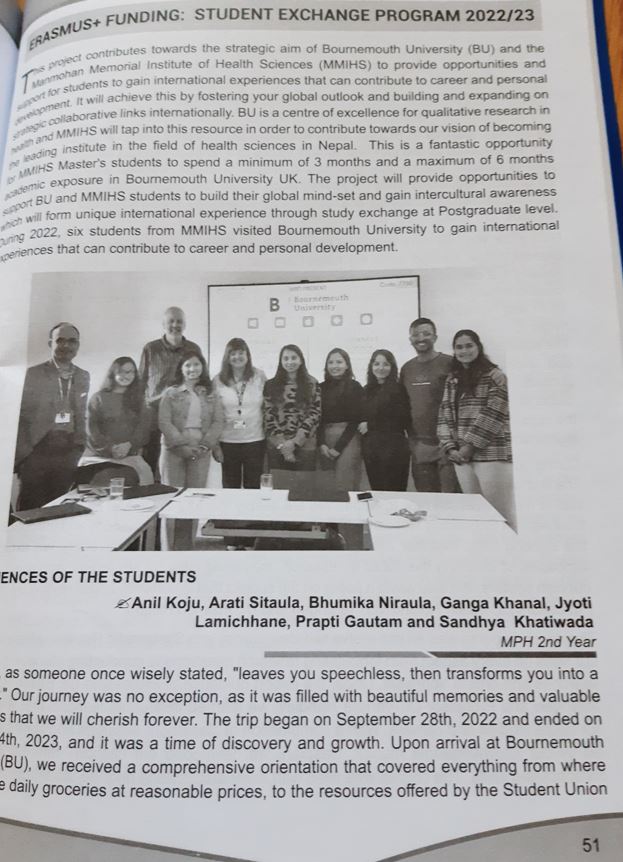
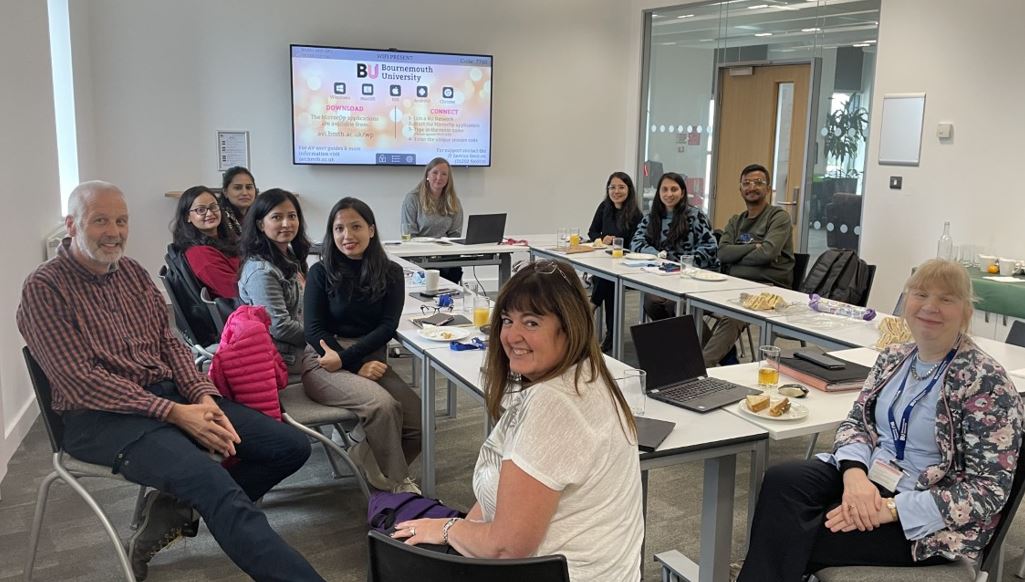
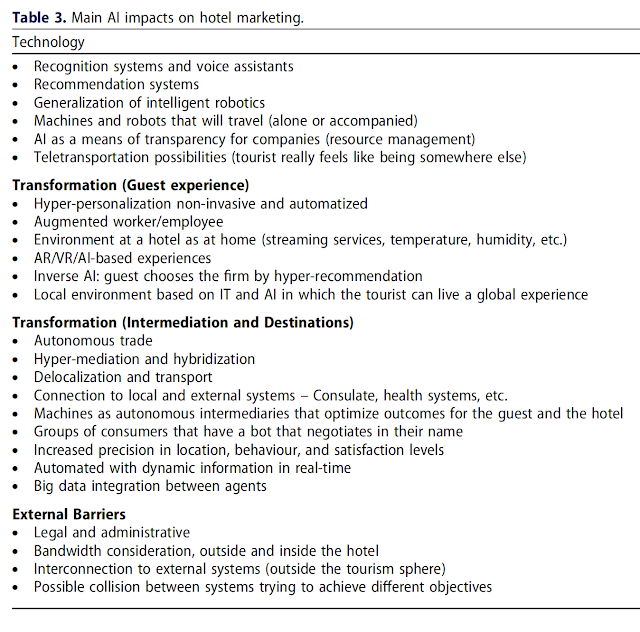


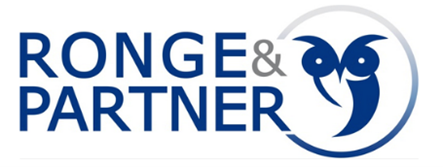
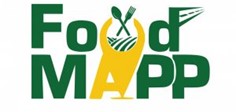

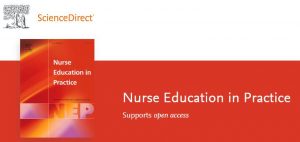

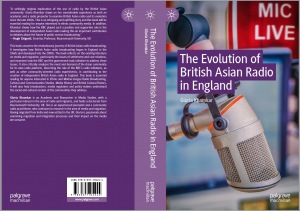
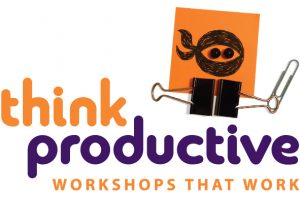



 The
The 










 REF Code of Practice consultation is open!
REF Code of Practice consultation is open! BU Leads AI-Driven Work Package in EU Horizon SUSHEAS Project
BU Leads AI-Driven Work Package in EU Horizon SUSHEAS Project Evidence Synthesis Centre open at Kathmandu University
Evidence Synthesis Centre open at Kathmandu University Expand Your Impact: Collaboration and Networking Workshops for Researchers
Expand Your Impact: Collaboration and Networking Workshops for Researchers ECR Funding Open Call: Research Culture & Community Grant – Apply now
ECR Funding Open Call: Research Culture & Community Grant – Apply now ECR Funding Open Call: Research Culture & Community Grant – Application Deadline Friday 12 December
ECR Funding Open Call: Research Culture & Community Grant – Application Deadline Friday 12 December MSCA Postdoctoral Fellowships 2025 Call
MSCA Postdoctoral Fellowships 2025 Call ERC Advanced Grant 2025 Webinar
ERC Advanced Grant 2025 Webinar Update on UKRO services
Update on UKRO services European research project exploring use of ‘virtual twins’ to better manage metabolic associated fatty liver disease
European research project exploring use of ‘virtual twins’ to better manage metabolic associated fatty liver disease